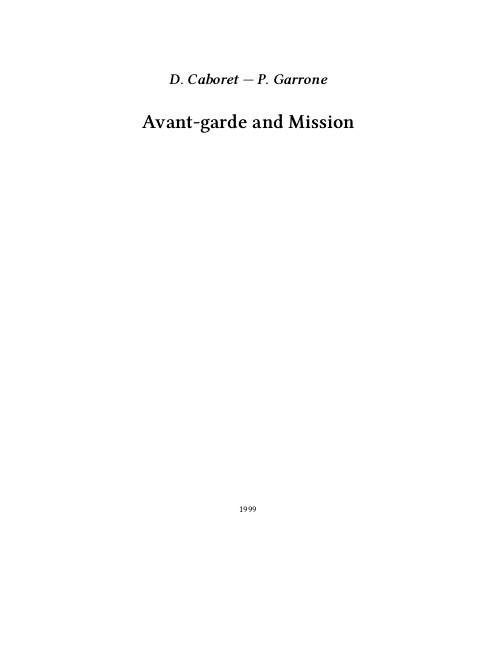Bernard Stiegler: Decadence of Industrial Democracies. Disbelief and Discredit, vol. 1 (2004/2011)
Filed under book | Tags: · biopolitics, capitalism, culture industry, democracy, desire, nihilism, philosophy, politics, production, singularity, technology

“Bernard Stiegler is one of the most original philosophers writing today about new technologies and their implications for social, political and personal life. Drawing on sources ranging from Plato and Marx to Freud, Heidegger and Derrida, he develops a highly original account of technology as grammatology, as a technics of writing that constitutes our experience of time, memory and desire, even of life itself. Society and our place within it are shaped by technical reproduction which can both expand and restrict the horizons and possibilities of human agency and experience.
In the three volumes of Disbelief and Discredit Stiegler argues that this process of technical reproduction has become dangerously divorced from its role in the constitution of human experience. Radically challenging the optimistic view of new technologies as facilitators of learning and progress, he argues new marketing techniques short-circuit thought and disenfranchise consumers, programming them to seek short-term gratification. These practices of ‘libidinal economics’ have profound consequences for nature of human desire and they underpin the social and psychological malaise of contemporary industrial society.
In this opening volume Stiegler argues that the industrial model implemented since the beginning of the twentieth century has become obsolete, leading capitalist democracies to an impasse. A sign of this impasse and of the decadence to which it leads is the banalization of consumers who become ensnared in a perpetual cycle of consumption. This is the new proletarianization of the technologically infused, hyper-industrial capitalism of today. It produces a society cut off from its past and its future, stultifying human development and turning democracy into a farce in which disbelief and discredit inevitably arise.”
First published in French as Mécréance et Discrédit: Tome 1, La décadence des démocraties industrielles, Galilée, 2004.
Translated by Daniel Ross and Suzanne Arnold
Publisher Polity, 2011
ISBN 0745648096, 9780745648095
200 pages
Review: Tom Bunyard (Radical Philosophy, 2012).
PDF (updated on 2020-8-7)
Comment (0)D Caboret, P Garrone: Avant-garde and Mission: Tiqqunery (1999) [French/English]
Filed under pamphlet | Tags: · capitalism, kabbalah, nihilism, philosophy, politics, theory

A critical study guide for readers of Tiqqun magazine.
“Addressed in 1999 to a small group of persons, the following text was intended to describe in general the philosophical and religious affiliations that the members of the magazine Tiqqun associated themselves with either explicitly or implicitly.” (from the introduction)
Publisher Friends of LHOOQ, Paris
Second edition, 2002
PDF [French]
PDF [English]
View online (HTML) [English]
Raoul Vaneigem: The Revolution Of Everyday Life (1967–) [FR, ES, EN]
Filed under book | Tags: · alienation, bourgeoisie, consciousness, everyday, labour, life, nihilism, power, proletariat, revolution, situationists, spectacle, things, transcendence

“The book was, along with Guy Debord’s The Society of the Spectacle, one of the most significant works written by members of the Situationist International (1957–1972).
The book takes the field of ‘everyday life’ as the ground upon which communication and participation can occur, or, as is more commonly the case, be perverted and abstracted into pseudo-forms. The author considers that direct, unmediated communication between ‘qualitative subjects’ is the ‘end’ to which human history tends – a state of affairs still frustrated by the perpetuation of capitalist modes of relation and to be “called forward” through the construction of situations. Under these prevailing conditions, people are still manipulated as docile ‘objects’ and without the ‘qualititive richness’ which comes from asserting their irreducible individuality – it is toward creating life lived in the first person that situations must be ‘built’. So to speak, it is the humiliation of being but a ‘thing’ for others that is responsible for all the ills Vaneigem equates with modern city life – isolation, humiliation, mis-communication – and toward creating new roles that flout stereotyped convention that freedom comes.” (Wikipedia)
French edition
Publisher Gallimard, 1967.
Vaneigem’s preface to the first French paperback edition was published by Gallimard in 1992.
English translation was first published in 1983 jointly by Left Bank Books and Rebel Press.
Translated by Donald Nicholson-Smith
Publisher Rebel Press, 2001
No copyright claims will be made against publishers of non-profit editions.
ISBN 0946061017, 9780946061013
279 pages
Review: Libero Andreotti (J Architectural Education, 1996).
Traité de savoir-vivre à l’usage des jeunes générations (French, 1967, unpaginated), HTML
Tratado del saber vivir para uso de las jovenes generaciones (Spanish, trans. Javier Urcanibia, 1977/2008)
The Revolution Of Everyday Life (English, trans. Donald Nicholson-Smith, 1983/2001)

